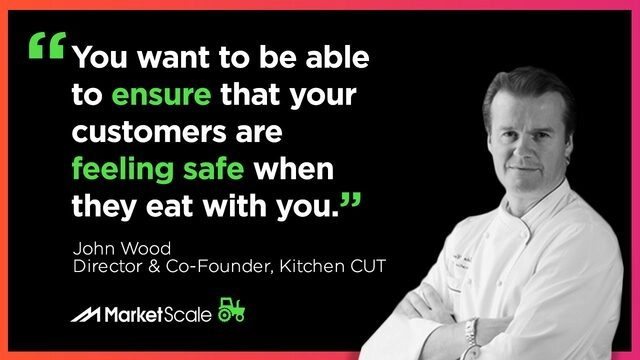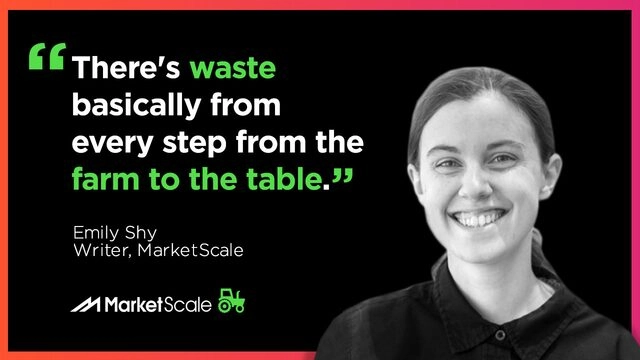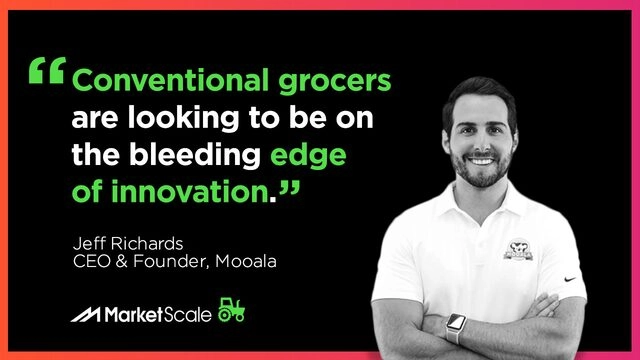MarketScale Food & Beverage, 12/11: The Rising Tide of Food Allergens
This week’s episode of the Food & Beverage podcast features deep look at solving some of the big problems in the industry. As the number of people with food allergies continues to rise, it forces those in food and beverage to put new safeguards in place. New products have also begun to emerge to replace what Americans are removing from their diets. This episode dives into both of those topics and also takes a look at the massive issue of food waste around the world.
How Restaurants Should Prepare for Food Allergies
 Recent estimates place the number of Americans with food allergies at approximately 15 million. As these numbers continue to grow, it becomes increasingly vital for restaurants to establish policies and practices to account for these allergies.
Recent estimates place the number of Americans with food allergies at approximately 15 million. As these numbers continue to grow, it becomes increasingly vital for restaurants to establish policies and practices to account for these allergies.
John Wood, Co-Founder & Director of Kitchen CUT joined the Food & Beverage podcast to discuss how restaurants can standardize their processes to ensure the safety of their customers. He also highlights the need for those in restaurant leadership to stress the importance of strict guidelines to their teams. “The restaurants…have a responsibility to educate the team and make them realize the importance of, if we do cross-contaminate here, there is a possibility they could kill somebody,” says Wood.
Education is an important step in this process, from the chefs down to the waitstaff. As the number of Americans with food allergies continues to grow, the need for clear cut policies for restaurants is clear, whether imposed internally or externally.
The Food Service Industry’s Most Important Issue

Emily Shy joined the podcast this week to discuss the excellent piece she wrote for MarketScale on food waste. Here’s an excerpt from that piece:
The world population is projected to reach 9.6 billion people by the year 2050. One of the greatest concerns associated with that growth is how to generate enough food for all of those people when there is such a global hunger issue currently. Yet solving world hunger is not actually a production issue, but a waste one. One-third of all food produced globally is wasted, which is enough “to feed all of the world’s hungry four times over.”
The amount of waste is even more staggering within the U.S. where “up to 40 percent of the food is never eaten.” Consequently the U.S. government has set a goal of achieving a 50 percent food waste reduction by 2030.
Food waste occurs at every step along the process from farm to table. For this reason, many initiatives are seeking to unite companies in every part of the food service industry. The Food Waste Reduction Alliance, formed in 2011, “includes more than 30 manufacturing, retailing and food service companies.”
Listen to her interview with Daniel Litwin on this week’s podcast and read the entire piece here.
The Impact of Plant-Based Products with Jeff Richards

Jeff Richards, the CEO and Founder of Mooala, joined the podcast to discuss the growth of the plant-based dairy-free industry, the move in the industry to address the surge in sensitivity to allergens, and the impact these alternatives to dairy are having on the industry as a whole.
“As trends like plant-based and dairy-free emerge, people are more in tune with their bodies than they ever have been,” says Richards. With the population taking a more proactive approach to the foods they’re putting in their bodies, products that offer alternatives to traditional products have grown in popularity.
Richards also discusses his surprise with how quickly plant-based products have been welcomed into tradition grocery stores. “What we’re seeing is that conventional grocers…are really looking to be on the bleeding edge of innovation,” he says.
For the latest news, videos, and podcasts in the Food & Beverage Industry, be sure to subscribe to our industry publication.
Follow us on social media for the latest updates in B2B!
Twitter – @FoodMKSL
Facebook – facebook.com/marketscale
LinkedIn – linkedin.com/company/marketscale









